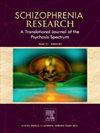学习卫生系统早期干预精神病:建立消费者的声音在临床高危精神病护理
IF 3.5
2区 医学
Q1 PSYCHIATRY
引用次数: 0
摘要
在首发精神病(FEP)治疗环境中,学习型卫生系统(LHS)正在建立,并促进了数据驱动的FEP治疗和康复结果的改善。早期精神病治疗也已扩大到为患有精神病谱系疾病风险增加的年轻人提供有针对性的早期干预,这些年轻人被描述为精神病临床高风险个体(chrp)。这导致了chrp项目在全国范围内的扩展,并更加注重为患有chrp的青少年开发循证治疗模式。在患有chrp的青少年中观察到的异质性和高频率的共病仍然是chrp计划的一个持续挑战,并且导致缺乏对寻求帮助的青少年对chrp治疗的个性化优先级的标准化理解。虽然CHR-p治疗中的LHS提供了独特的框架来解决这一不断发展的领域中尚未解决的问题,但它们尚不成熟。精神病风险评估反馈调查是为chrp临床使用而开发的,用于直接评估个人参与chrp临床评估、接受chrp诊断印象和讨论治疗建议的经历。这篇评论的目的是强调利用LHS来更好地了解患有chrp的青少年及其照顾者的经历的必要性,为他们在治疗的早期阶段提供一个发言权的平台,引入一种新的调查方法,并概述将数据整合回临床护理的方法,以告知个性化的评估和治疗。本文章由计算机程序翻译,如有差异,请以英文原文为准。
Learning health systems in early interventions for psychosis: Establishing consumer voices in clinical high-risk for psychosis care
Learning health systems (LHS) are becoming established in First Episode Psychosis (FEP) treatment settings and have facilitated data driven improvements in FEP treatment and recovery outcomes. Early psychosis treatment has also expanded to provide targeted early intervention to youth who are at increased risk of developing psychosis spectrum illness, characterized as individuals at clinical high risk for psychosis (CHR-p). This has led to a national expansion of CHR-p programs and an increased focus on developing evidence-based treatment models for youth with CHR-p. The heterogeneity and high frequency of co-morbidities observed among youth with CHR-p remains a constant challenge for CHR-p programs to navigate and contributes to a lack of standardized understanding of the help seeking youth's individualized priorities for CHR-p treatment. While LHS in CHR-p treatment offer unique frameworks to address unanswered questions in this growing area, they are less established. The Psychosis Risk Assessment Feedback Survey was developed for CHR-p clinical use to directly assess individuals' experiences participating in CHR-p clinical assessments, receiving CHR-p diagnostic impressions, and discussing treatment recommendations. The aim of this commentary is to highlight the need for utilizing LHS to better understand youth with CHR-p and their caregivers experiences, provide a platform for them to have a voice at the earliest stages of treatment, introduce a novel survey method, and outline methods for integrating data back into clinical care to inform individualized assessment and treatment.
求助全文
通过发布文献求助,成功后即可免费获取论文全文。
去求助
来源期刊

Schizophrenia Research
医学-精神病学
CiteScore
7.50
自引率
8.90%
发文量
429
审稿时长
10.2 weeks
期刊介绍:
As official journal of the Schizophrenia International Research Society (SIRS) Schizophrenia Research is THE journal of choice for international researchers and clinicians to share their work with the global schizophrenia research community. More than 6000 institutes have online or print (or both) access to this journal - the largest specialist journal in the field, with the largest readership!
Schizophrenia Research''s time to first decision is as fast as 6 weeks and its publishing speed is as fast as 4 weeks until online publication (corrected proof/Article in Press) after acceptance and 14 weeks from acceptance until publication in a printed issue.
The journal publishes novel papers that really contribute to understanding the biology and treatment of schizophrenic disorders; Schizophrenia Research brings together biological, clinical and psychological research in order to stimulate the synthesis of findings from all disciplines involved in improving patient outcomes in schizophrenia.
 求助内容:
求助内容: 应助结果提醒方式:
应助结果提醒方式:


